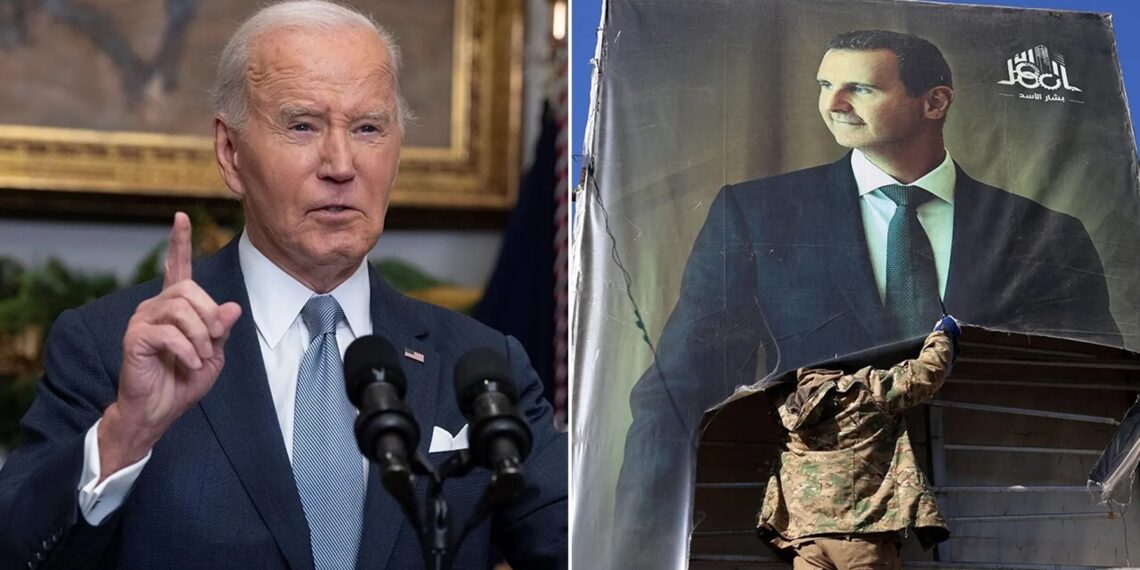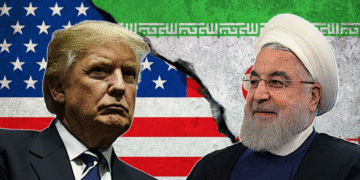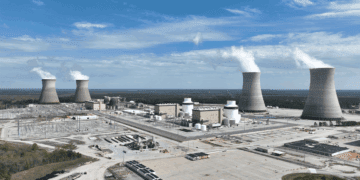By John F. Di Leo, Opinion Contributor
It is apparently time to celebrate the good news in the Middle East. Bashir Assad has been toppled in Syria; he and his family have fled to Russia, and there is a power vacuum in Syria at last.
We are told this is good news. With the dictator gone, the Arab street is full of joyful revelers, waiving their automatic weapons in the air, hoisting their flags, cheering the coming caliphate. Good news. Party like it’s 1999, as they say.
But there’s a problem: We don’t know for sure exactly what’s coming next.
This isn’t like a baseball or football rivalry, where you cheer if your team wins, but there’s really no major downside if you lose. The season ends, one team wins the cup, the ring, or the glory, but outside of a tickertape parade and some “World Series Champions!” sweatshirts for one side or the other, life goes on for all of us, just as it did before.
In the real world, when governments fall, whole regions are turned upside down. Various demographic groups – from social castes to ethnicities to occupations – rise to the top of the new order, or are found to quickly fall out of favor. Those previously discriminated against may take the opportunity to exact revenge; those previously safe may suddenly find themselves without protection, and in fear of their lives.
In the first few days since the fall of the Assad regime, the western press had taken the rosy view: the dictator is vanquished; all must therefore be well with the world. But that’s neither honest nor believable.
There was a very dark side to the Assad regime: the ruling family had been brutal to many of their own people, they long served as important allies in the region to Russia and Iran, and worst of all, they were a major go-between, funneling weapons and other materiel to terrorists in Lebanon, Israel, and elsewhere. So there is certainly good news here; what’s left of Hamas and Hezbollah can’t look forward to any more help from Assad.
But there was a bright side to the Assad regime as well. The Assad regime was not uniformly repressive; it protected some demographic groups that are persecuted in other middle-eastern countries, such as their Christian minority, which numbers between 10 and 20 percent of the Syrian population. The loss of this protection means that many Syrian Christians will need to flee, as fast as possible, while the replacement government is consolidating its newfound power.
We are reminded of the western cheer twenty years ago when Saddam Hussein was driven from power in Iraq. We all saw Hussein’s government’s horrific abuses. Saddam Hussein paid the families of arab terrorists in Israel every time a family raised a suicide bomber, to encourage more Hamas families to make such evil contributions to their cause. Hussein had a terrorist training camp, outfitted with actual planes, to teach hijackers and other would-be terrorists on their preferred methods. Hussein had built and used banned weapons – chemical and biological – on his own people, just as Bashir Assad has in Syria. There is no question that Saddam Hussein “deserved” to be tossed from power.
But we were not prepared for the effect of that power vacuum on the region. We had known, but had not fully appreciated, what a critical counterbalance against Iran the Iraqi government had been. When we removed Iraq, it empowered Iran.
By the same token, this change in Syria has happened so fast, we haven’t had a full opportunity to process what the result will be, both on Syria itself and on its region.
The rebels who have overthrown Assad include leaders with long Al Qaeda and ISIS pedigrees. Some of their leaders, in fact, are terrorists whom the United States captured in the Iraq wars, held for a time, and foolishly, eventually released.
Syria has not been freed from a dictator to be transformed into a Western republic. In fact, Syria has merely changed dictators – from an Iran-connected crowd to a more Turkey-connected crowd, perhaps, but likely just as brutal, if not more so, as the regime it replaces.
Supply lines may change, but then again, they may not. The new regime in Syria will be just as hostile to Israel as the regime it replaces. The new regime in Syria will certainly be more hostile to its own Christian population. It may not be as helpful to Hamas and Hezbollah, perhaps, but there’s so much less of Hamas and Hezbollah today than there was before, the lack of Syrian support won’t make much of a difference there.
There are populations in Syria whom the United States have tried to defend for years; this is no time to let up. We have allies among the Kurds, allies among the Christians, allies among other Syrian muslims. The population does not act in lock step; many will be just as dissatisfied with the new regime as they were with Assad, and they will benefit from our support.
Watching the Middle East from afar over the decades, we have seen a couple of the shining monuments to “peaceful, neighborly relations” in the muslim world collapse into jihadist-minded, islamic extremism. Turkey and Lebanon, half a century ago, were thought of as pluralistic, reasonable, friendly. We even let Turkey join NATO. But look at those two onetime beacons today; both Lebanon and Turkey are now enemies of Western Civilization.
Truth be told, if we read the tea leaves correctly, Syria has just switched allegiance from the orbit of Iran to the orbit of Turkey, that’s all.
Hopefully, there is a bright side to this: the four-year vacuum in global relations caused by the non-presidency of the corrupt Biden-Harris regime is shortly coming to an end. In six weeks, President Trump returns to the world stage, and American leadership will be back, hopefully in the nick of time.
In his last presidency, Donald Trump engineered the Abraham Accords. He made it a special part of his mission to bring peace to that powder keg of a region, and he’ll certainly return to that effort in his second term. The Biden-Harris years have left him a mess to clean up, but he’s ready to tackle it.
Perhaps the bigger concern for us all, as onlookers, is the timing. Why did Syria’s jihadist rebels launch their decisive offensive now, of all times? Was the fact that it was one month after the American election, and six weeks before President Trump’s inauguration, a decisive factor in the rebels’ planning?
Did they want to get this over with now, before the new Trump administration was in place, because they figured it would be infinitely more difficult afterward?
Yes, such speculations may just be water under the bridge. But it’s worth considering – because there are still six weeks to go, and a lot of other countries around the world are in the midst of either hot or mild civil wars. A lot of countries, big and small, with ideas of conquest, and a clock ticking the days away until the world has a policeman on duty again.
May Divine Providence keep us safe until then.
Copyright 2024 John F. Di Leo
By Roger Stone and Mark Vargas, Opinion Contributors Originally published in the Gateway PunditIllinois taxpayers are being asked to believe a fairy tale.They are told that Gov. JB...
Read moreDetails








